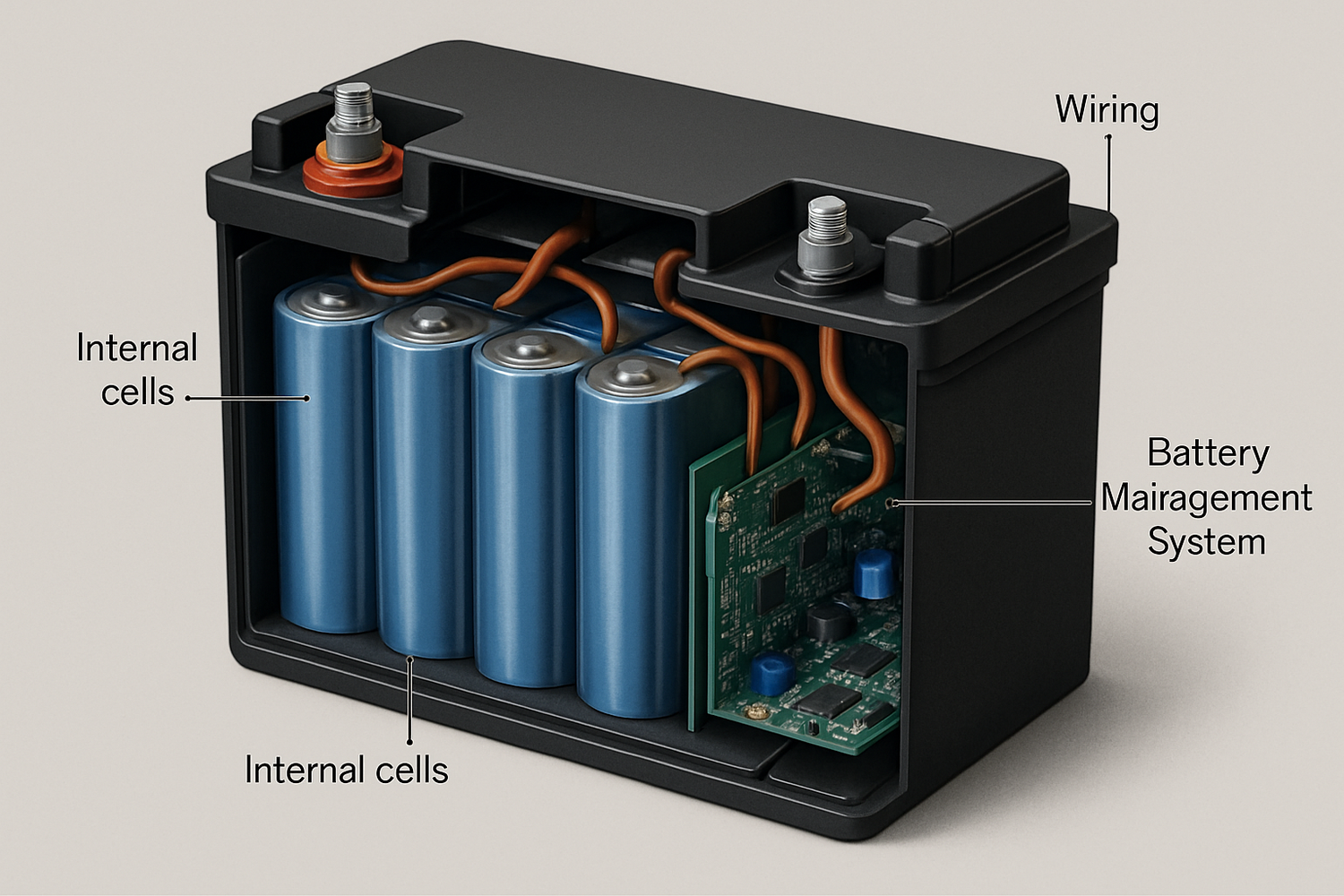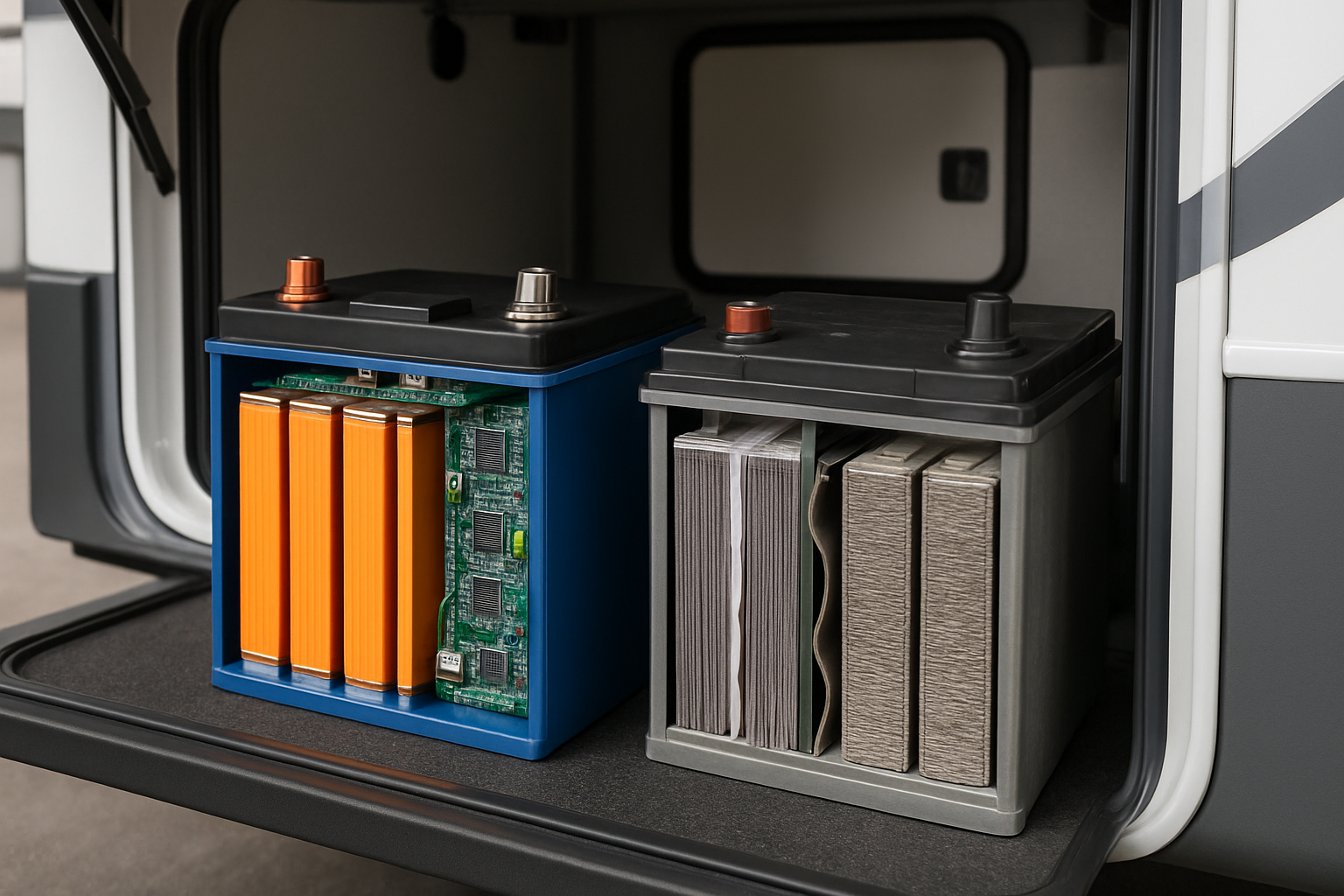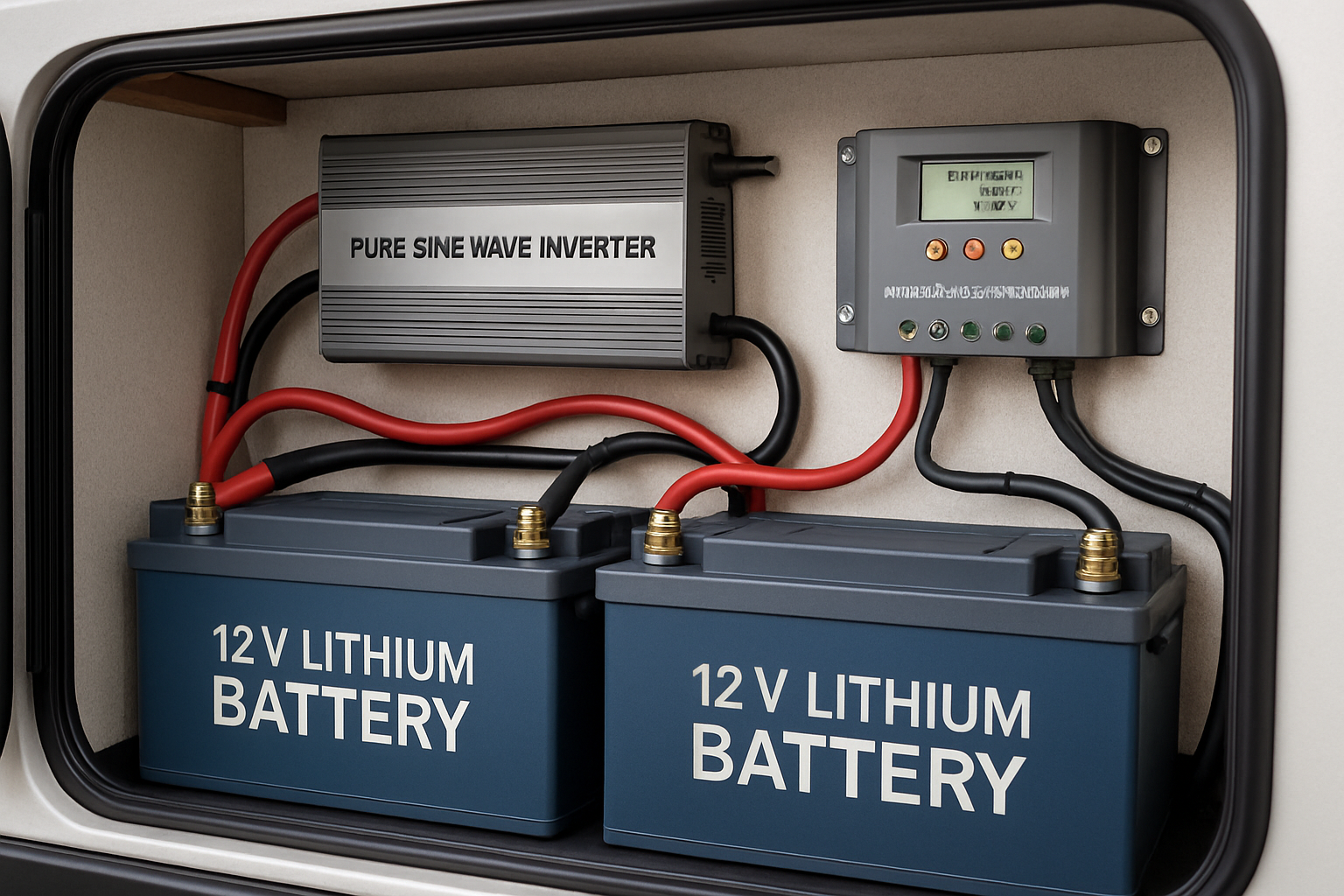Upgrading your RV power system often leads to considering a 12V lithium battery. This technology is gaining popularity for good reason. Yet, misinformation can make the decision confusing. Many RV owners hesitate due to persistent myths about cost, safety, and complexity. This guide cuts through the noise. We will examine the most common misconceptions and present the reality of using an RV lithium battery, helping you make a confident choice for your travels.
The Myth of High Costs and Low Value
The initial price tag of a lithium battery is often the first thing people notice. This can create the impression of an unjustifiable expense. However, looking only at the upfront cost provides an incomplete picture of the battery's true value over its operational life.
Myth: Lithium Batteries Are Too Expensive
A common belief is that the high initial price of a lithium battery makes it a luxury rather than a practical investment. When compared directly to a traditional lead-acid battery, the upfront cost is undeniably higher. This single data point can deter many potential users from exploring the technology further, without considering the long-term financial implications.
Reality: A Long-Term Investment That Pays Off
The true financial benefit of an RV lithium battery is revealed through its total cost of ownership. Lithium Iron Phosphate (LiFePO4) batteries, the standard for RV applications, offer a significantly longer lifespan. They can handle 3,000 to 5,000 charge cycles, whereas a typical lead-acid battery may only last 300 to 500 cycles. This durability means you would replace a lead-acid battery multiple times over the lifespan of a single lithium battery. Furthermore, LiFePO4 batteries provide a higher usable capacity, allowing you to discharge them up to 100% without damage, compared to the 50% recommendation for lead-acid. This means a 100Ah lithium battery provides nearly double the usable power of a 100Ah lead-acid battery.
| Feature | LiFePO4 Lithium Battery | Lead-Acid (AGM) Battery |
|---|---|---|
| Lifespan (Charge Cycles) | 3,000 - 5,000+ | 300 - 500 |
| Usable Capacity (Depth of Discharge) | 80% - 100% | 50% |
| Weight (100Ah) | ~25 lbs (11 kg) | ~65 lbs (29 kg) |
| Maintenance | None | Regular checks, cleaning |
| Efficiency | ~95% | ~80-85% |
Unpacking Safety and Reliability Concerns
Stories about lithium batteries in consumer electronics have created widespread safety concerns. It is crucial to distinguish between different lithium chemistries and understand the safety mechanisms built into modern RV power systems.
Myth: Lithium Batteries Are a Fire Hazard
The fear of battery fires is a significant concern for many RV owners. This apprehension is largely fueled by incidents involving lithium-ion batteries with cobalt-based chemistries, which are common in smartphones and laptops. These chemistries are more volatile and have a lower thermal runaway temperature, making them less suitable for robust applications like an RV power system.
Reality: LiFePO4 Chemistry and BMS Offer Superior Safety
The RV industry overwhelmingly uses Lithium Iron Phosphate (LiFePO4) batteries. This chemistry is inherently more stable and less prone to thermal runaway than other lithium-ion types. The strong molecular bond within LiFePO4 makes it exceptionally safe, even under harsh conditions. Every modern 12V lithium battery also includes a critical component: the Battery Management System (BMS). The BMS acts as the brain of the battery, continuously monitoring its state. It automatically prevents overcharging, over-discharging, short circuits, and operation in extreme temperatures, effectively eliminating the common causes of battery failure and safety incidents. The focus on improving battery technologies, as noted in reports like the IEA's The Role of Critical Minerals in Clean Energy Transitions, has led to advancements that benefit stationary storage systems, enhancing their safety and reliability.
Performance and Compatibility Myths
Another area of confusion involves how a lithium battery integrates with an existing RV setup. Many assume a complete and costly overhaul is necessary, but the reality is often much simpler.
Myth: You Must Replace Your Entire RV Electrical System
The idea of a complicated and expensive system-wide upgrade can be daunting. RV owners may worry that their current converter, wiring, and solar controllers will all become obsolete. This perception of an all-or-nothing upgrade prevents many from considering the switch.
Reality: Smart Upgrades and Component Compatibility
While some adjustments are needed, a full system replacement is rarely required. The most important component to check is your RV's converter or charger. It should have a specific charging profile suitable for lithium batteries. Many modern RVs are already equipped with multi-stage converters that are compatible. If not, upgrading this single component is a straightforward process. Similarly, your solar charge controller should be adjustable to LiFePO4 settings. Most quality controllers offer this flexibility. The existing wiring is typically sufficient, as lithium batteries can handle higher charge and discharge rates without issue.
Myth: Lithium Batteries Perform Poorly in Cold Weather
It is true that standard lithium batteries cannot be charged at temperatures below freezing (32°F or 0°C) without risking damage. This fact leads many to believe they are unsuitable for camping in colder climates.
Reality: BMS Protection and Heated Battery Options
The BMS in an RV lithium battery will automatically prevent charging when the temperature is too low, protecting it from damage. While charging is restricted, discharging is generally safe at much lower temperatures, meaning you can still power your devices. For those who frequently camp in the cold, many manufacturers offer 12V lithium batteries with built-in heating systems. These heaters use a small amount of power from the charger to warm the cells to a safe temperature before charging begins, ensuring full functionality in any season.
Making an Informed Decision for Your RV
Moving past the myths reveals that a 12V lithium battery is a practical, safe, and financially sound upgrade for nearly any RV power system. The benefits of a longer lifespan, greater usable power, lighter weight, and maintenance-free operation provide significant value. By understanding the realities of LiFePO4 technology and the role of the BMS, you can confidently invest in an RV power system that delivers reliable energy and independence on all your adventures. For a deeper look at battery specifications, this reference on solar storage performance offers valuable details.
Frequently Asked Questions
Can I mix lithium and lead-acid batteries in my RV?
This is not recommended. The two battery types have vastly different charging and discharging characteristics. Connecting them in the same system will lead to inefficient performance and can damage both batteries over time. It is best to use a single chemistry for your entire house battery bank.
What is a Battery Management System (BMS)?
A BMS is an electronic circuit board built into a lithium battery pack. Its primary job is to protect the battery cells. It monitors voltage, current, and temperature to prevent conditions like overcharging, deep discharging, and overheating. It also ensures all cells in the pack are balanced, which maximizes the battery's lifespan and performance.
How many years does an RV lithium battery last?
A high-quality LiFePO4 battery for an RV can last for 10 years or even longer. Its lifespan is typically measured in charge cycles, with most rated for 3,000 to 5,000 cycles or more. This is a substantial improvement over the 3-5 year average lifespan of a traditional lead-acid deep cycle battery.





Leave a comment
All comments are moderated before being published.
This site is protected by hCaptcha and the hCaptcha Privacy Policy and Terms of Service apply.